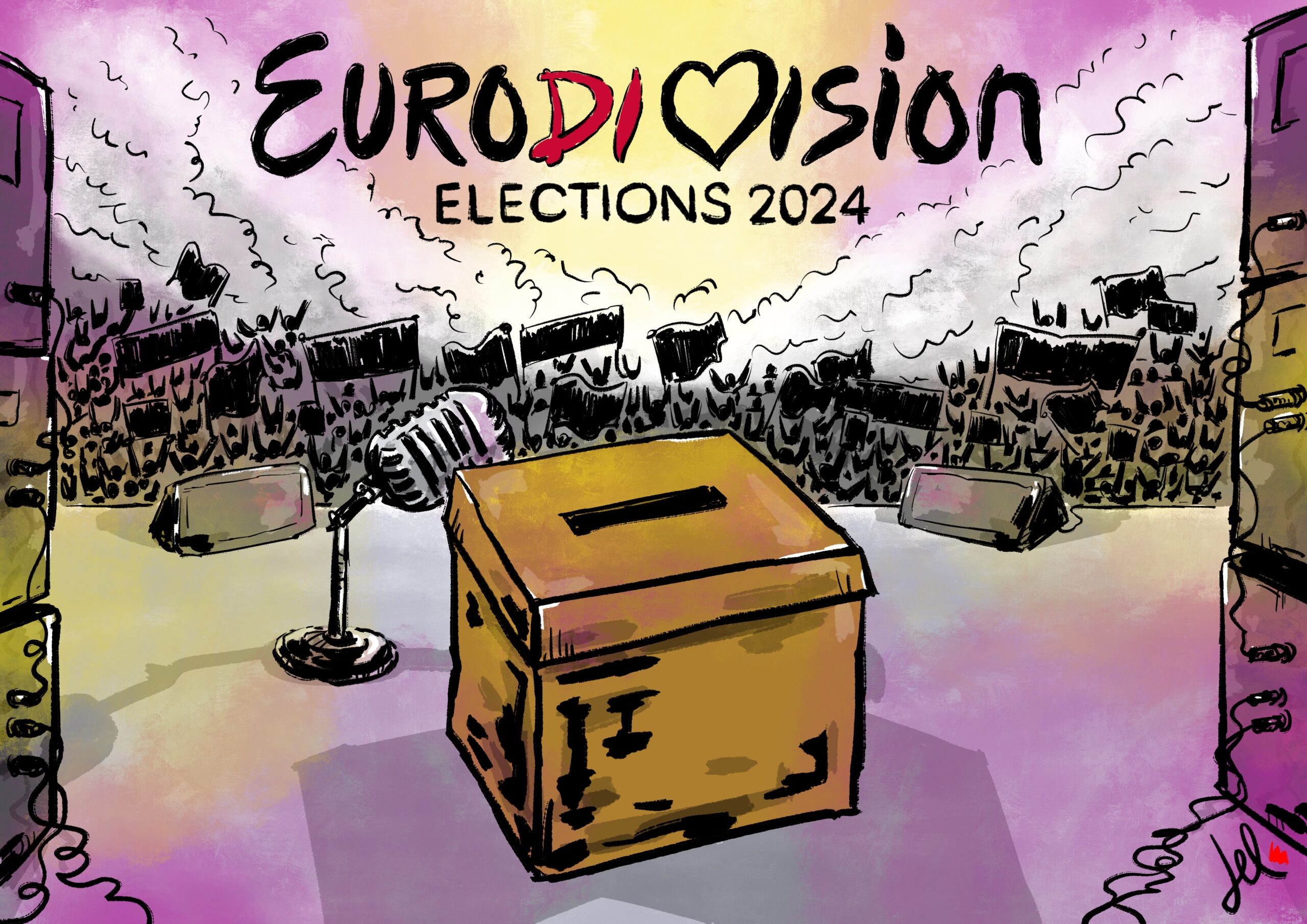This article will first appear on Europe Day, barely a few weeks before the European Elections. This unique, multi-national democratic process will no doubt be met with the usual collective appréhension, apatía if not downright Angst. And yet, as Europeans we are, also, barely hours away from another pan continental “happening” which, as if in some mirror universe, will see hundreds of millions of us reaching excitedly for our phones from Barcelona to Bratislava, from Stockholm to (checks notes) Sydney (sic) in order to do precisely the same thing – vote! Together with everyone else in the same continent. Mesdames et Messieurs, Eurovision!
Like a yearly combine-harvester throwing up its ever more unpredictable crop of eccentricity, kitsch and sheer wonderfulness, nothing could be quite as unthinkable and yet as joyously European. The Americans discovered this to their cost. Two years ago they imported the idea. It was cancelled after one season. Leaving aside the fact they dragged the whole thing out over six weeks, in no conceivable universe could “Hi there Texas, can you guys tell us how y’all voted ?” bare the same historical heft and generate the spine-tingling thrill factor of “Bonsoir Baku, may we have the votes of the Azerbaijan jury, please ?”
Memories come back of a friend from Miami who ten years ago came to stay with me in Paris, by chance during Eurovision weekend. She’d never heard of it. I warned her that come Saturday evening my flat would be full of 40 hysterical people from all over the place, waving plastic flags, pencilling in notes on wine-stained scorecards, tweeting and “sharing the moment”. I remember to this day the glazed look on her face when she got up after watching all 26 songs, thinking it was finally over. “Oh no, Isabel, I told her – we still have… the voting procedure !”
Like it or not (and many vehemently do/don’t) it is the only truly pan-continental event on anything approaching a massive scale. Europeans watch each others’ clubs playing football. This generates stadium-level degrees of passion. Football will however always be fundamentally binary. For almost 70 years now, for a couple of hours, one evening in May, a whole continent gathers together, checking out the neighbours, each country secretly thinking they’re the only ones who “don’t take it seriously”.
Much derided, its origins, are nonetheless impeccable and actually very poignant indeed. In the mid 1950’s, la solidarité européenne was still buried in the coal dust of treaties barely signed. Nonetheless, nations which hardly a decade before were bombing each other to smithereens decided to set up, of all things, a cheery musical contest. Get them all humming along to the same tunes. Insipid melodies were to grasp the overbearing weight of a distant glimmer of hope for a better future, together.
In its own idiosyncratic way, throughout the turbulent decades of our varied national and shared histories, Eurovision has “been there” for us. Not everyone on 6th April 1974 was in awe of what would be the launch of the millennial music phenomenon that was ABBA. Portugal’s leaders had jammed communications systems between the army, navy and air force, making joined-up insurgence impossible. The “carnation” revolutionaries needed an unexpected signal to take to the streets. And so it was that when Paulo de Carvalho shared the same glittery stage as his Swedish competitors in their glittering pantaloons to sing E Depois do Adeus (And After the Goodbye), it was the signal these very revolutionaries were waiting for to boot out Europe’s oldest fascist dictatorship.
Little “moments” abound. In 1981 a 20 year old German girl with her guitar asked merely for “a little peace on our earth” and the whole continent said yes. Recently interviewed on German TV Nicole remembers her win for a particular reason. “The fact that Israel, (and we know our joint history which was still much closer then) gave me, a German girl singing a song about peace its maximum 12 points, still moves me to this day.” In 2014 homophobia seemed to be taking root all over Eastern Europe. Nonetheless, country after country gave the bearded drag queen Conchita Wurst singing a Bond-style Sixties revamp “12 points.” In its own inimitable way, Eurovision was doing what it alone can – giving a voice to a whole continent to say no, nein, non to Putin’s homophobia. Ukraine’s Kalush Orchestra with their haunting Stefania rap anthem was always going to win in 2022. The music didn’t matter. Europe, for once, all speaking the same language very much did.












